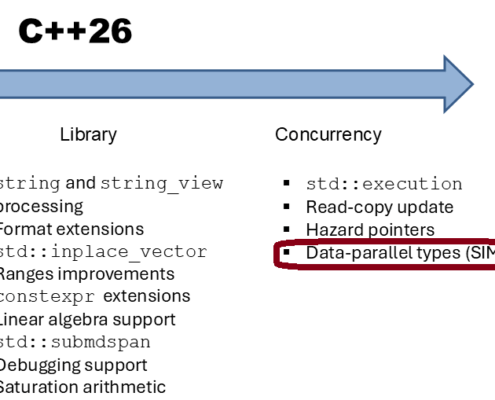
Data-Parallel Types – A First Example
After providing a theoretical introduction to the new C++ 26 feature in my last article, “Data-Parallel…

My ALS Journey (24/n): Cippi’s World Tour
Many of you want to get in touch with Cippi. So here is a brief overview of her travel plans for 2025.
>>…
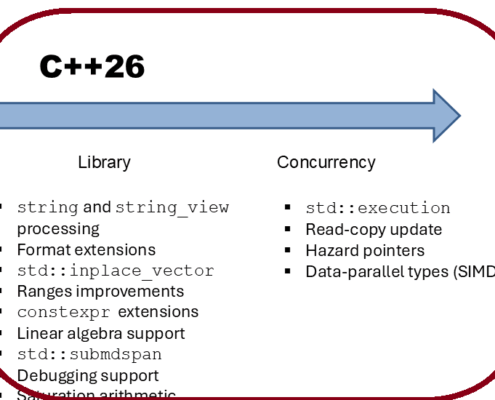
Data-Parallel Types (SIMD)
The data-parallel types (SIMD) library provides data-parallel types and operations on them. Today, I…
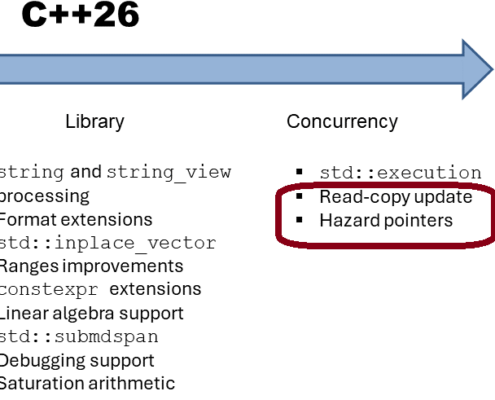
Read-copy-update (RCU)
Read-copy-update is strong in multithreading environments where a data structure is read almost exclusively…
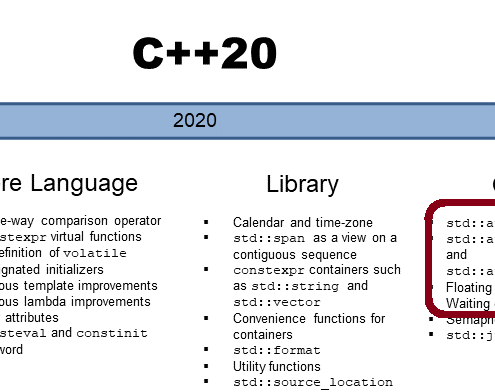
atomic<shared_ptr<>> by Oliver Schädlich
This blog article is an experiment. A few days ago, I received the following email (translated from…

My ALS Journey (23/n): Cippi
Let me introduce Cippi. I hope you like her. You probably already know her from my C++ books.
>>…
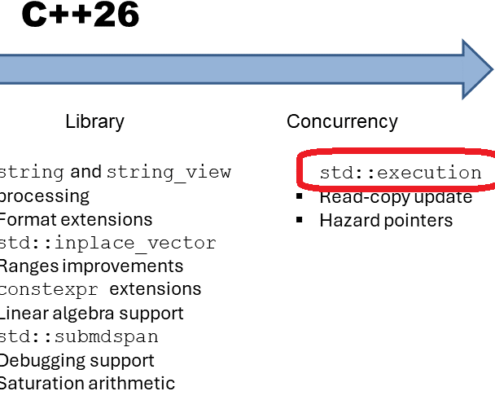
Hazard Pointers in C++26
Hazard pointers provide garbage collection in C++ and solve the ABA problem.
First of all. What…

My ALS Journey (22/n): Call for Collaboration
Today, I have a special call for collaboration.
>> My ALS Journey so far <<
My Challenge
…

A Lock-Free Stack: A Hazard Pointer Implementation Explained II
In my last post, I started to explain a hazard pointer implementation: A Lock-Free Stack: A Hazard Pointer…

A Lock-Free Stack: A Hazard Pointer Implementation Explained I
In my last post, I presented a hazard pointer implementation: A Lock-Free Stack: A Hazard Pointer Implementation.…

My ALS Journey (21/n): ALS Fundraiser by Jen and Jason
Today, I want to present you something special.
>> My ALS Journey so far <<
ALS Fundraiser…

A Lock-Free Stack: A Hazard Pointer Implementation
Hazard Pointers solve all issues of the previous implementation: A Lock-Free Stack: A Simple Garbage…
